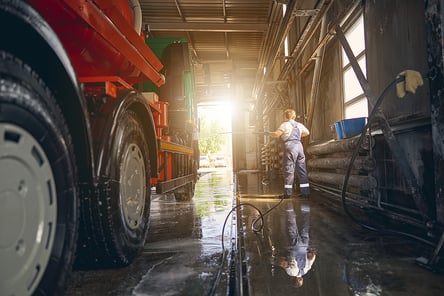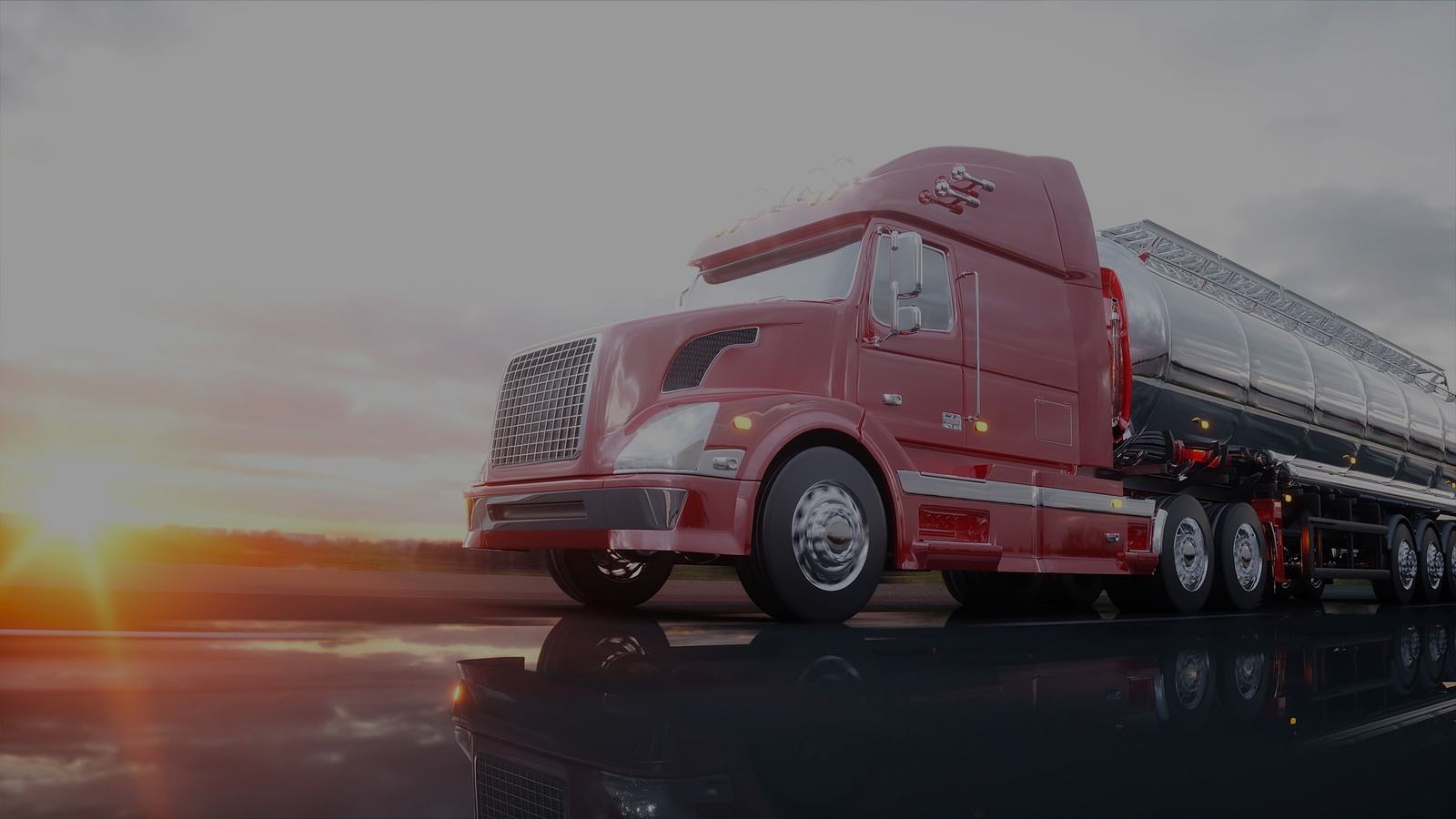One of the biggest differences between liquid bulk and other kinds of freight trucking is the need to wash the tank after unloading. Tank washing is a vital, though inconvenient, part of bulk liquid shipping that prevents cross contact of products and contamination. In this article, we’ll examine the trailer tank washing process in detail.
How bulk trailer tank washing is performed

When chemicals and other types of bulk liquids are exposed to one another, contamination can occur. Even a small trace of the tank’s previous product can have a negative impact on the next product being loaded. As such, once a product is hauled in a liquid bulk tanker and unloaded at the delivery site, that tank will need to be thoroughly washed before it can be loaded with another product.
Tank wash facilities are located across North America and will typically wash out the tank in one of the following ways.
The most common type of tank wash is performed with a caustic soda solution or detergent. The solution is placed inside a spinning mechanism inserted into the tank through the dome. This mechanism spins and sprays the solution all over the tank, which is then rinsed, drained, and dried afterward. This type of wash is commonly used for products such as latexes.
A similar process is used for food-grade washes (which use specialized food-grade detergents) and Kosher washes (which only use Kosher-certified materials to wash the tank). In recent years, there has been a greater focus on environmentally safe detergents that minimize the use of hazardous chemicals and reduce water usage during the cleaning process.
In many cases, the tanker’s gaskets, hoses, and pumps are cleaned along with the inside of the tank.
For sensitive products, such as pharmaceuticals or high-purity chemicals, advanced cleaning methods have been developed using non-caustic agents and ultrasonic technologies to ensure zero cross-contamination.
For products like alcohols, a simple steam and rinse could be all that is needed for a tank wash.
For other products that are more likely to stick to the inside of the tank, ‘pre-cleaning’ may be required. With precleaning, a cleaning agent is applied to the tank to loosen up particles prior to a caustic or detergent wash.
After the wash, some trailer tanks may require an additional round of cleaning, and in rarer cases, the tank may require a tank wash facility specialist to enter the tank and apply steel wool or perform spot cleaning.
A heightened focus on food safety, particularly in the wake of the Covid pandemic, has resulted stricter cleaning protocols for food-grade and pharmaceutical bulk loads. Many companies now require more stringent tracking measures related to washes and sanitation processes to ensure compliance.
Many shippers have specific tank wash requirements. These can include ‘incompatible prior products’ (a tank is not to be used if certain products were in the tank previously), the type of cleaning that must be performed, and even the specific facilities that are authorized to perform washes on tanks that will haul their products. Upon arrival at a loading site, the truck driver needs to show the washout slip which displays the details of the tank wash performed.
Supply chain impacts of trailer tank washes
Tank washes add extra time to every shipment. After dropping a load, the driver might have to travel an hour or more — maybe even to another state — to reach a suitable tank wash station. Not every washing facility is designed to clean every liquid bulk tank. Some handle chemicals only, while others are designed only for food-grade loads. Some have limitations on the products they can wash due to regional groundwater restrictions.
Since the pandemic, there has been a general shortage of tank wash facilities due to closures and staffing shortages. As of 2024, the capacity issue has improved slightly, but wait times at some wash locations remain high.
Once the driver arrives at the tank wash facility, he or she will likely need to wait their turn. This is then followed by the tank wash itself, which can take several hours. A wash can be more time-consuming if there is difficulty removing excess liquids (or ‘heel’) out of the tank after washing.
Washes also add cost. The cost of washing the trailer may appear on the shipper’s freight bill as a separate charge. For some products, bulk liquid tanker carriers will apply a standard washing charge. For others, the carrier will pass along the actual dollar amount that the wash station charges. With the rising costs of labor and environmental compliance, the cost of a tank wash has increased by an average of 10% since 2021. Shippers should inquire about this charge when booking a load.
Lean on the Bulk Connection Tank Wash Finder
Shippers, carriers, and drivers who need to incorporate a tank wash visit into their loads can lean on Bulk Connection’s Tank Wash Finder. This online tool enables carriers, drivers, and corporate transportation professionals to quickly locate tanker washout facilities across the U.S. and Canada. Celebrating its fifth anniversary in 2024, the tool provides information for 450 facilities, including real-time availability and wait times.
Bulk Connection is also a provider of bulk transportation services, with one of the largest networks of liquid and dry bulk carriers in North America. To learn more about our services, contact Bulk Connection today.





